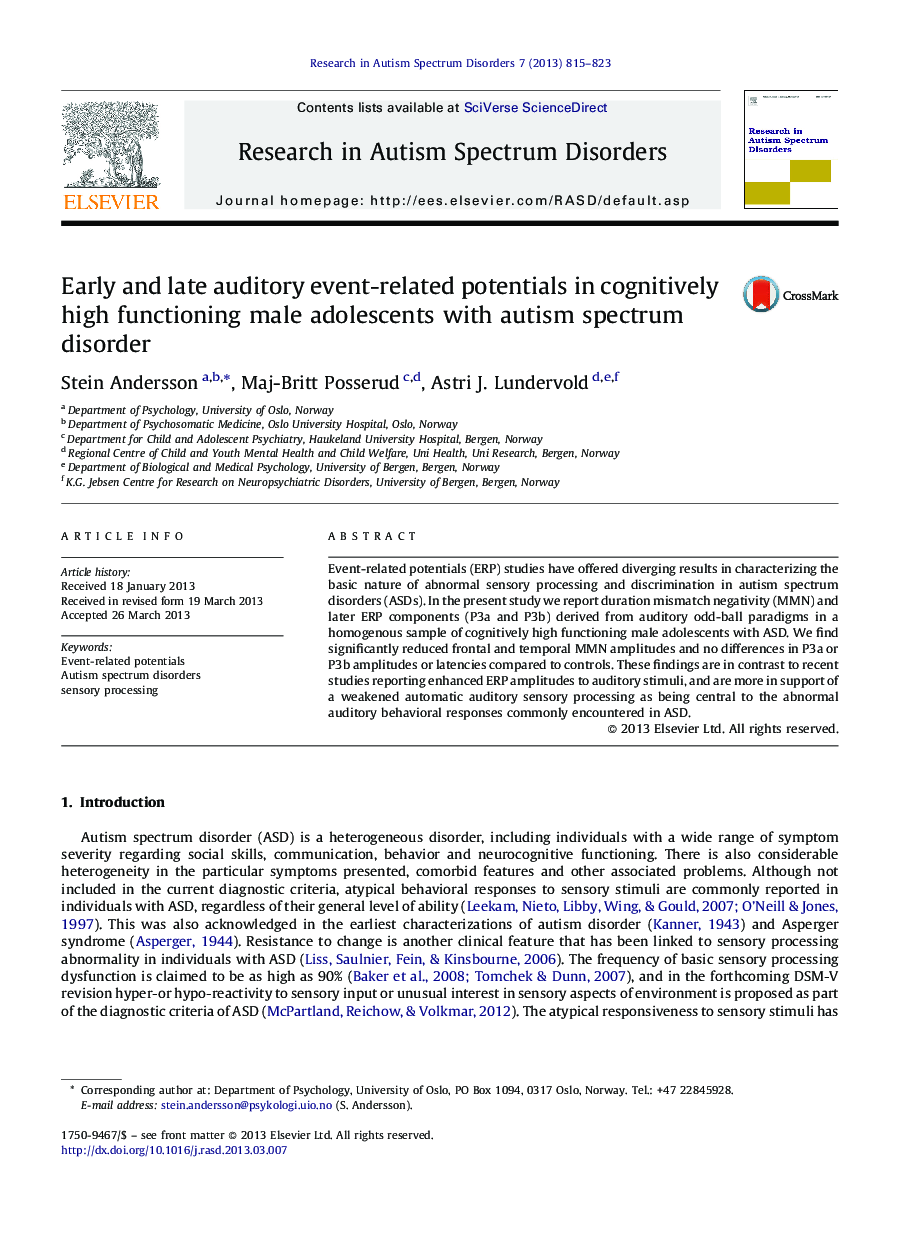| Article ID | Journal | Published Year | Pages | File Type |
|---|---|---|---|---|
| 370387 | Research in Autism Spectrum Disorders | 2013 | 9 Pages |
•Auditory processing was examined in 11 high functioning male ASD adolescents and matched controls.•Frontal and temporal MMN were attenuated suggesting impaired pre-attentive auditory discrimination.•Later ERP components (P3a and P3b) indexing controlled processing did not differ.•Results support a hypo-sensitivity hypothesis regarding sensory processing in ASD.
Event-related potentials (ERP) studies have offered diverging results in characterizing the basic nature of abnormal sensory processing and discrimination in autism spectrum disorders (ASDs). In the present study we report duration mismatch negativity (MMN) and later ERP components (P3a and P3b) derived from auditory odd-ball paradigms in a homogenous sample of cognitively high functioning male adolescents with ASD. We find significantly reduced frontal and temporal MMN amplitudes and no differences in P3a or P3b amplitudes or latencies compared to controls. These findings are in contrast to recent studies reporting enhanced ERP amplitudes to auditory stimuli, and are more in support of a weakened automatic auditory sensory processing as being central to the abnormal auditory behavioral responses commonly encountered in ASD.
